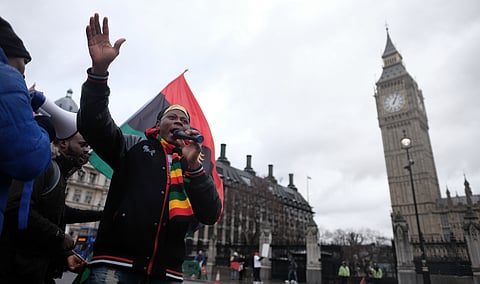

A Nigerian court on Thursday convicted Nnamdi Kanu, leader of the banned Indigenous People of Biafra (IPOB), on all seven terrorism-related charges after a trial that lasted over ten years and repeatedly inflamed tensions in the country's southeast.
Judge James Omotosho ruled that prosecutors had proven Kanu used radio broadcasts and direct orders to incite followers to carry out attacks on security forces and civilians as part of his campaign for an independent Biafra state.
The judge stated that Kanu knew exactly what he was doing and was bent on carrying out threats of violence without consideration for consequences to his own people.
The court found these actions amounted to preparatory acts of terrorism.
Kanu faces possible death penalty, though Nigeria rarely carries out executions.
Prosecutors rested their case after calling five witnesses.
Kanu declined to present a defence, insisting the charges were invalid and that his 2021 re-arrest in Kenya had been unlawful.
The judge rejected his no-case submission and, after Kanu missed deadlines and sacked his legal team, closed the defence case.
Kanu, a dual Nigerian-British citizen, was removed from court for unruly behaviour before the ruling was delivered.
Kanu first faced charges in 2015, obtained bail in 2017, then fled after a military raid on his home.
He was re-arrested abroad in 2021 and returned to Nigeria.
A 2022 appeal court ruling that ordered charges dropped due to illegal rendition was overturned by the Supreme Court in 2023.
Security was heavy around the Abuja courthouse amid fears of unrest.
Analysts warn the conviction may deepen separatist sentiment in the Igbo-majority southeast, where IPOB is blamed for recent deadly attacks.